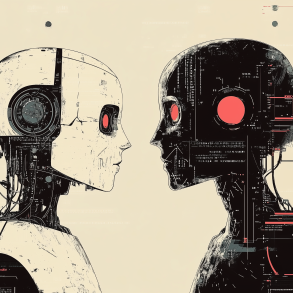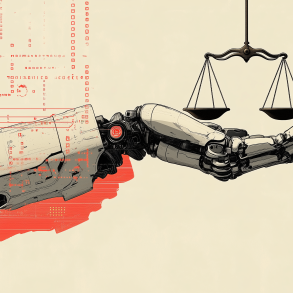The New AI-Enabled ICT Workforce Consortium Has Released Its First Report, Offering Perspective on Impending Workforce Shifts
Artificial intelligence is set to bring significant changes to society, though the extent to which it will replace human workers remains a topic of debate. The newly formed AI-Enabled ICT Workforce Consortium has released its first report, “The Transformational Opportunity of AI on ICT Jobs,” which suggests that 92% of IT jobs will experience significant or moderate transformation due to AI advancements.
The report indicates that mid-level (40%) and entry-level (37%) technology jobs will undergo the most change as certain skills and capabilities shift in relevance. Skills such as AI ethics, responsible AI, rapid engineering, AI literacy, and large language model architecture are expected to gain importance, while traditional data management, content creation, documentation maintenance, basic programming and languages, and research information may become less critical.
The report emphasizes the need for all IT professionals to develop skills in AI literacy, data analytics, and rapid engineering, underscoring the consortium’s mission to support workers in reskilling and upskilling.

This in-depth analysis explores AI’s impact on tech jobs and is backed by major industry players like Cisco, Accenture, Eightfold, Google, IBM, Indeed, Intel, Microsoft, and SAP. They are joined by advisors from organizations such as the American Federation of Labor and Congress of Industrial Organizations (AFL-CIO), Chain5, Communications Workers of America (CWA), DigitalEurope, the European Vocational Training Association (EVTA), Khan Academy, and SMEunited.
The consortium’s report examined AI’s effects on 47 ICT roles across seven job groups, including business and management, cybersecurity, data science, design and user experience, infrastructure and operations, software development, and testing and quality assurance.

Francine Katsoudas, Cisco’s Director of People, Policy, and Purpose, and leader of the consortium, stated, “AI represents an unprecedented opportunity for technology to benefit humanity in every way, and we need to be intentional about making sure people are not left behind.” Katsoudas further explained, “Across all member companies in the consortium, we have taken on the collective responsibility of training and upskilling 95 million people over the next 10 years. By investing in a long-term roadmap for an inclusive workforce, we can help everyone participate and thrive in the AI era.”
The consortium members have outlined the following training commitments:
Google: Will provide over $130 million in funding to support AI training and skills development for people across the U.S., Europe, Africa, Latin America, and the Asia-Pacific region.
Cisco: Aims to train 25 million people in cybersecurity and digital skills by 2032.
IBM: Plans to train 30 million people by 2030 in digital skills, including 2 million in AI by the end of 2026.
Intel: Intends to train more than 30 million people with AI skills for current and future jobs by 2030.
Microsoft: Aims to train and certify 10 million people in digital skills by 2025, a goal it claims to have achieved a year ahead of schedule.
SAP: Plans to upskill 2 million people worldwide by 2025.









